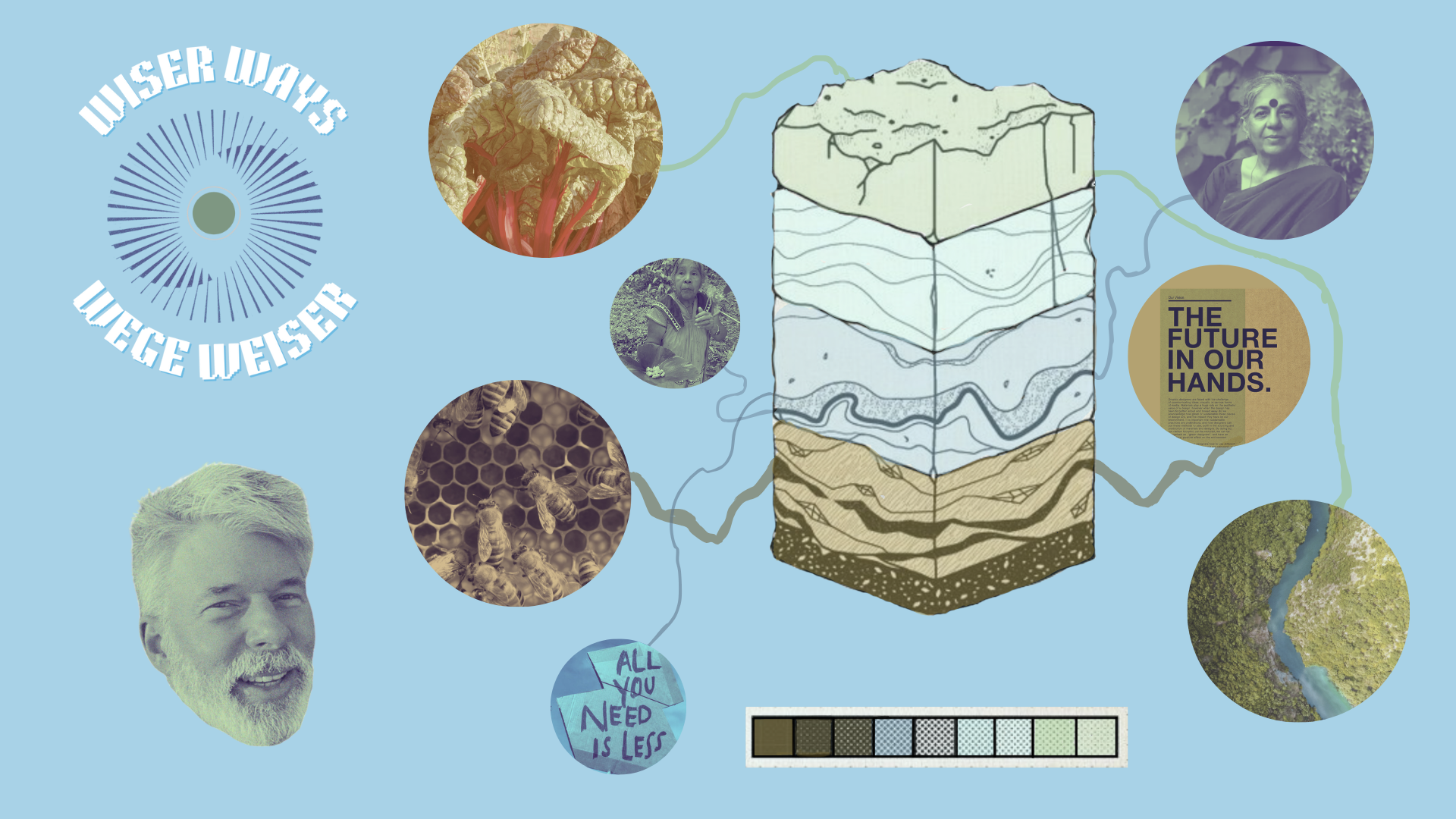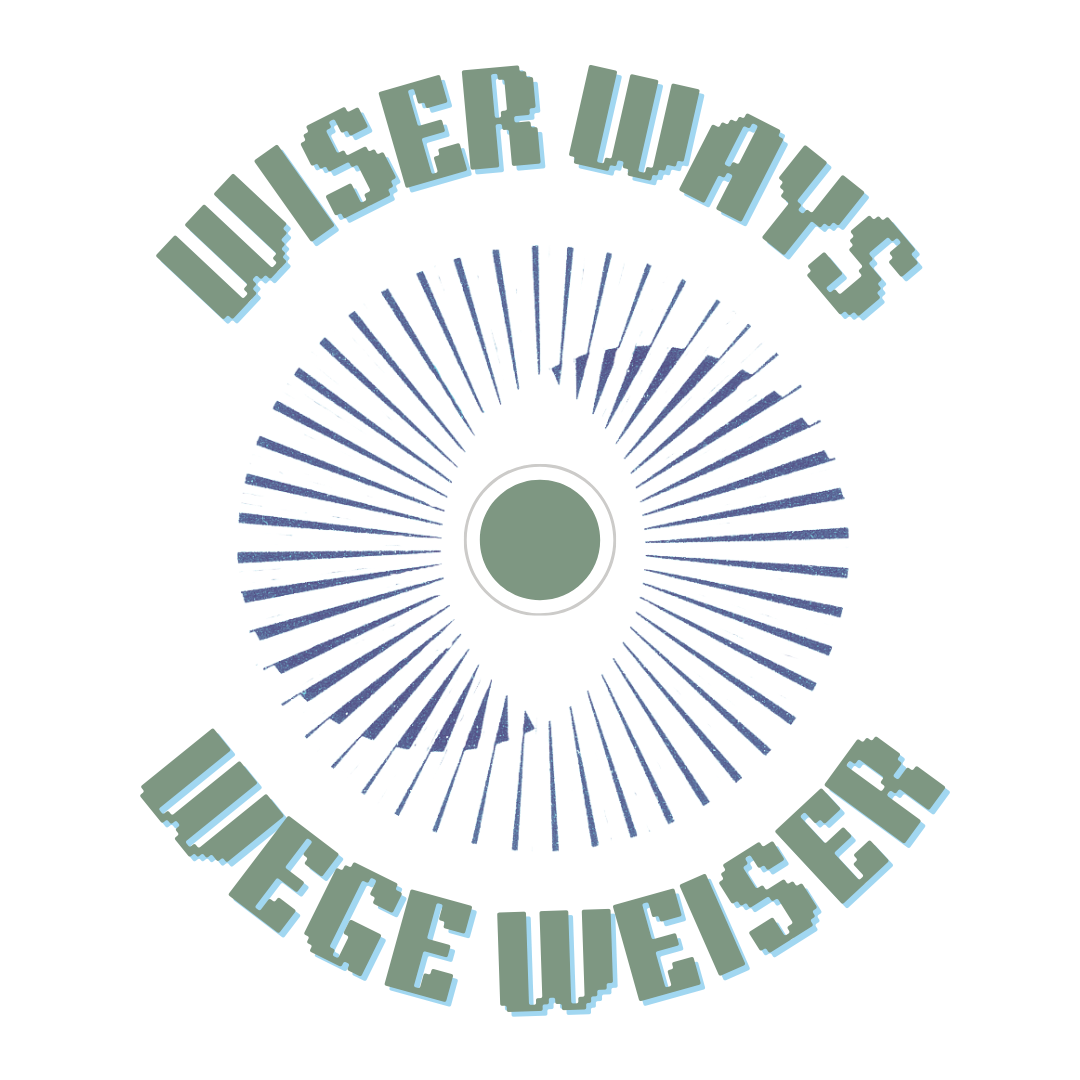Wiser Ways - Wege Weiser Shaping the future together
Our platform wants to SHOW regenerative WAYS and connect them together. The positive change that is being talked about a lot is not just a fad, but a reality. All around the world, people are working to create a sustainable, diverse and just world - a world that breaks down the apparent separation between humans and nature and redefines our interwoven existences. At a time when ecological, social and economic challenges are becoming more and more pressing, we want to make projects and approaches visible that address these tasks and connect the people behind them. Similar to the mycelium in nature, which creates a network of living things that support one another, resilience in our community arises through intelligent, interconnected co-existence. Projects cross-fertilize each other, learn from each other and grow together.

About Markus Kristen
When I asked people of other cultures on my travels: "and who are you?", they often began to tell about themselves through stories about their grandparents or even great-grandparents. As a professional coach, I like to understand the actions of participants in the context of the system in which people are embedded – also in the temporal dimension of this “network of life”. Perhaps we should return to this practice in Western cultures and give a little more context to our "how we became". I'll start with this: my maternal grandfather, called "Daddi", was supposed to be a prisoner of war in a Siberian gulag, but said to an American officer: "I want to American camp". Although he was a prisoner of war from Nazi Germany, he was incredibly welcomed by a peasant family more as a human than as a forced laborer and became so involved, that he returned years later with an agricultural diploma. In this context, I am concerned with the question today: "How is it possible for individual people to act bigger than playing the desired "role" into which the destructive system wants to tempt us?”
After retiring as a school principal in Hamburg, my grandfather's acquired Farmers Diploma enabled him to take over the family farm on the Baltic Sea. My uncle, who later ran the farm, thankfully" let me participate mercilessly in the "production chain" of a pig fattening company: piglet "production" with the sows fixed in boxes, fattening, transport (he himself drove the truck with three-story loading area), unloading, slaughtering, torching, gutting, cutting, quality classification in the Hamburg slaughterhouse. These radically honest experiences without a "curtain in front of them" contributed to the fact that I was predominantly vegetarian in my life. At the same time, I was able to learn how important animals are for a natural material cycle in small-scale agriculture, for example, to use lean areas through grazing and to do so without artificial fertilizers based on fossil oil or gas.
In my parental home, our garden was an adventure place, which my mother Wiebke (she worked as a primary school and biology and German teacher) looked after and she encouraged me and my brother Jonas, together with friends, to play creatively in it, decorating it with all kinds of "treasures" of bulky waste (such as an oven with a fire stove). We re- and upcycled, created, tested. When I later had children myself, I always came back to this valuable influence of my mother.
As an exemplary formative experience with my father, who worked as a botanist with scientists of all cultures who came in and out with us, on the electron microscope, I would like to share one that is characteristic of his teachings:
As a ten-year-old, I had a small table with a microscope next to the doctoral students during the holidays and studied the growth of bacteria, which I supplied with a nutrient solution made of sugar water in Petri dishes. If I gave too little or too much sugar, the cultures starved to death or "choked". After some time, however, the bacteria died down, although they still had room to spread - no matter what I tried. My father said a phrase (possibly formulated more child-friendly) that shapes me to this day: "If a species lives in a limited system, it dies when it has used up the resources, or, if it does not work cyclically as an ecosystem, from the toxic pollution of its habitat by the degradation products of the resources it metabolizes. This applies to the Petri dish, but also to our earth.”
Then came my years as scouts, in which we hiked the European landscapes with a group of boys. We cooked on the fire, slept on the floor and were always connected to nature and people. To this day I can withdraw from these experiences: I can live happily with little in the sense of "less is more"!
Of the many beautiful cultural encounters, I would like to highlight two: When we were paddling along the shore of a lake in Finland, a village community invited us to go for a sauna together. Astonished, we took the cleansing whiplashes with birch slurry and threw ourselves into the cooling floods after the sauna after the sauna session. In Portugal, an old farmer forgave us the atrocities of the Nazis against his family with a glass of wine and in Greece we were invited by a shepherd to breakfast for breakfast together: He shared his large tomato, onion and some salt with us. We could not communicate with words, but with facial expressions and gestures and the heart.
On all these journeys, I felt involved in the “web of life” – the ecosystem in which we live. Our pawnshop group was also very socio-politically ecological and - starting from the girls and women - feminist-oriented. At that time, I was enthusiastic about "Little Heroes in Need" and "The Gender Role" by Rainer Neutzling and "The Little Difference" by Alice Schwarzer.
This should then also flow into my professional biography: While my parents always oscillated between teaching and research in their profession as biology (university) teachers, I started with a study of biology and geography - but the "human" had done more to me, so that I completed my diploma with educational sciences accompanied by sociology and psychology.
First, I started working with boys and men at Pro Familia as a sex educator and supported them in their search for constructive masculinity and successful relationships with themselves, women, children, all people, nature, society and business. Against the background of the often destructive design claim of men. A complex of questions that concerns me throughout - also with regard to global issues, e.g. how a regenerative economy and society can succeed in harmony with the functioning of global living ecosystems.
The masculine fantasy of solving problems that have arisen through technology with "high tec" only creates more problems and risks from my perception, such as in geo-engineering. The situation is similar from my point of view in the scientific enterprise, which often looks at partial problems, but not at the relationships and processes of the parts in the larger system.
In my then unfolding professional activity, two topics were always in the foreground: living and managing in harmony with nature within the planetary borders and the design of organizations and leadership roles. I founded the "adventure camps" with which children could occasionally go on a week of environmental educational adventure trips and school trips at 6 forest locations with 35 Teamers. This is also where my concept of father-child camps was born: executives from Bosch and Airbus camped with me in the forest - in addition to the experience of nature, the strengthening and closeness in the relationship with their child was in the foreground. I like to remember open conversations among the men at the campfire about worries, challenges and joys in their experience of the role of the father. One question that concerns me in this context is how men can be good fathers, even if they themselves often could not experience constructive relationships with their fathers.
Parallel to my work with children in the forest, I then went to the companies, where I have been on the road for over 20 years as a coach, trainer, moderator and consultant and work with executives.
Here, too, I am driven by the question of how companies can serve the common good and how a longer-term perspective (concept of the "7 generations") and not only sustainable, but regenerative (since too many ecosystems have already been destabilized and destroyed) can have an effect.
When I look at my path since I was born in 1971, I am always aware of one thing: humanity has doubled from four billion to almost eight billion people, wild animals make up only 4% of the mass of all mammals and we have used and changed 70% of the non-Arctic land area. We live in one of our "full worlds". Against this background:
